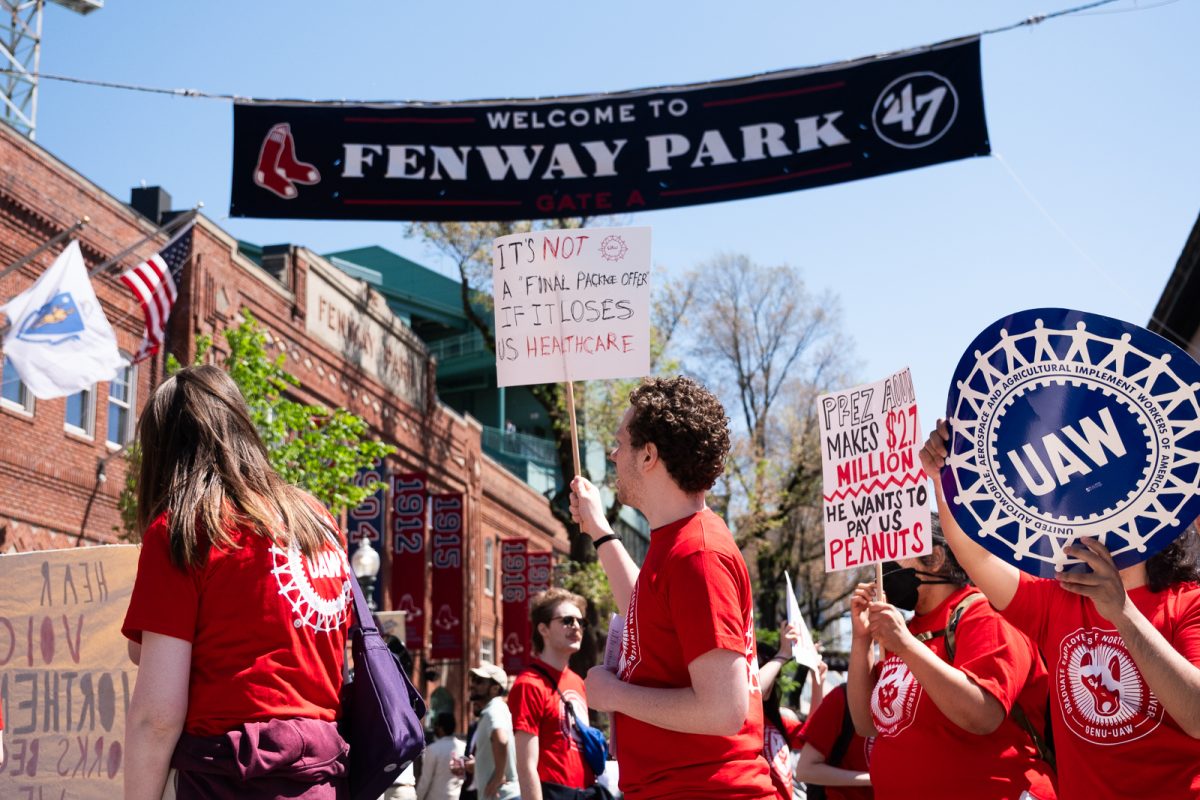Since 1999, when former Northeastern student Shawn Fanning ignited popular peer-to-peer file sharing by developing Napster in his residence hall, the phenomenon has spread from the NU campus outward like an unstoppable epidemic.
Consequently, the Recording Industry Association of America (RIAA) assumed policing duties in 2003 to combat so-called “pirates,” but has changed its strategy in the latest chapter of its prolonged effort to prevent the practice.
After suing more than 35,000 people during its nearly five-year long crusade, the RIAA recently announced that it will adopt a more mild policy in lieu of wielding mass lawsuits against illegal file sharers. Instead, they will use Internet Service Providers (ISPs) as official conduits. When illegal file sharing or downloading is detected, the ISP, not the RIAA, will contact the culprit via e-mail, requesting they stop after the first of two warnings. If the user does not stop after the second warning, the ISP will slow down service or cut it off all together, according to recent media reports.
According to the reports, the RIAA itself came under scrutiny during its onslaught of lawsuits, managing to sue several single mothers, a 13-year-old girl and person who had died.
“Only time will tell if this will actually be effective,” said Marcus Breen, a communications studies professor at Northeastern. “It could be a total waste of time. It’s really an attempt to keep the music industry alive, when they might be better off to put the [industry] out of its misery.”
The RIAA maintains its fight against illegal music downloading is for the good of the music industry.
“We have all seen the effects illegal downloading has had on Music Row – too many record stores have been shuttered and too many songwriters are out of the business of writing songs,” said RIAA CEO and Chairman, Mitch Bainwol, in a recent RIAA press release.
Breen said the music industry is suffering after having experienced success in the ’70s and ’80s and has recently taken to following policy that may alienate music fans.
“The music industry tends to resort to threat,” Breen said. “Their first reaction is to threaten legal action.”
Northeastern students are no strangers to aggressive RIAA tactics.
Last winter, while Erin Cheek was living in the international residence hall at 153 Hemenway St., she said she received an aggressively worded e-mail, forwarded along through the university and signed by representatives at the RIAA.
“I was a very active downloader,” admitted the sophomore international affairs and human services major. “I love music, so I was downloading probably over 100 songs a day. I just like to check out bands to see if I like them, and maybe I will actually buy their music.”
Although Cheek said she was regularly downloading everything from classic rock to contemporary indie via Limewire, the song that got her in trouble – named by the RIAA in their letter – wasn’t on her hard drive.
“After that, I don’t use [peer-to-peer file sharing programs] anymore,” she said. “They were like, ‘This is the first warning.’ If it happened again, they would have been able to sue me, basically.”
In the past, the RIAA has charged some students thousands of dollars and taken those who didn’t pay to court. In late 2005, the RIAA accused MIT graduate Cassi Hunt of sharing 272 songs. The non-negotiable settlement price they provided was $3,750.
Some schools willingly provide the RIAA and Motion Picture Association of America (MPAA) with the names of students whose IP addresses have been linked to illegal activity, said Tom Leary, a help-desk supervisor at Infocommons. But he said Northeastern has never entered into such an agreement with either organization.
“We don’t really get involved if the RIAA or MPAA petition for information about students,” Leary said.
Instead, Northeastern would only forfeit the information if a subpoena was filed. Bearing in mind the recent change in RIAA policy, Leary said he doesn’t foresee any change in Northeastern’s approach – even though Northeastern is the official ISP of all its on-campus students.
Bob Weir, vice president of Information Services at Northeastern, said that while he had no comment on the RIAA’s actions, students need to be aware they are responsible for how they choose to use ResNet.
Although the RIAA’s new warning system might seem more fair to students, Cheek said she preferred the process by which she was contacted – even though it could have concluded with her shelling out an inordinate amount of money.
“People might not take [the threat] as seriously if they have multiple chances – one warning and then a consequence is probably most effective,” she said. “And it was more effective for me that I would actually get sued, than maybe lose Internet access. I can use a computer elsewhere.”
– News staff Dani Capalbo
contributed to this report.









